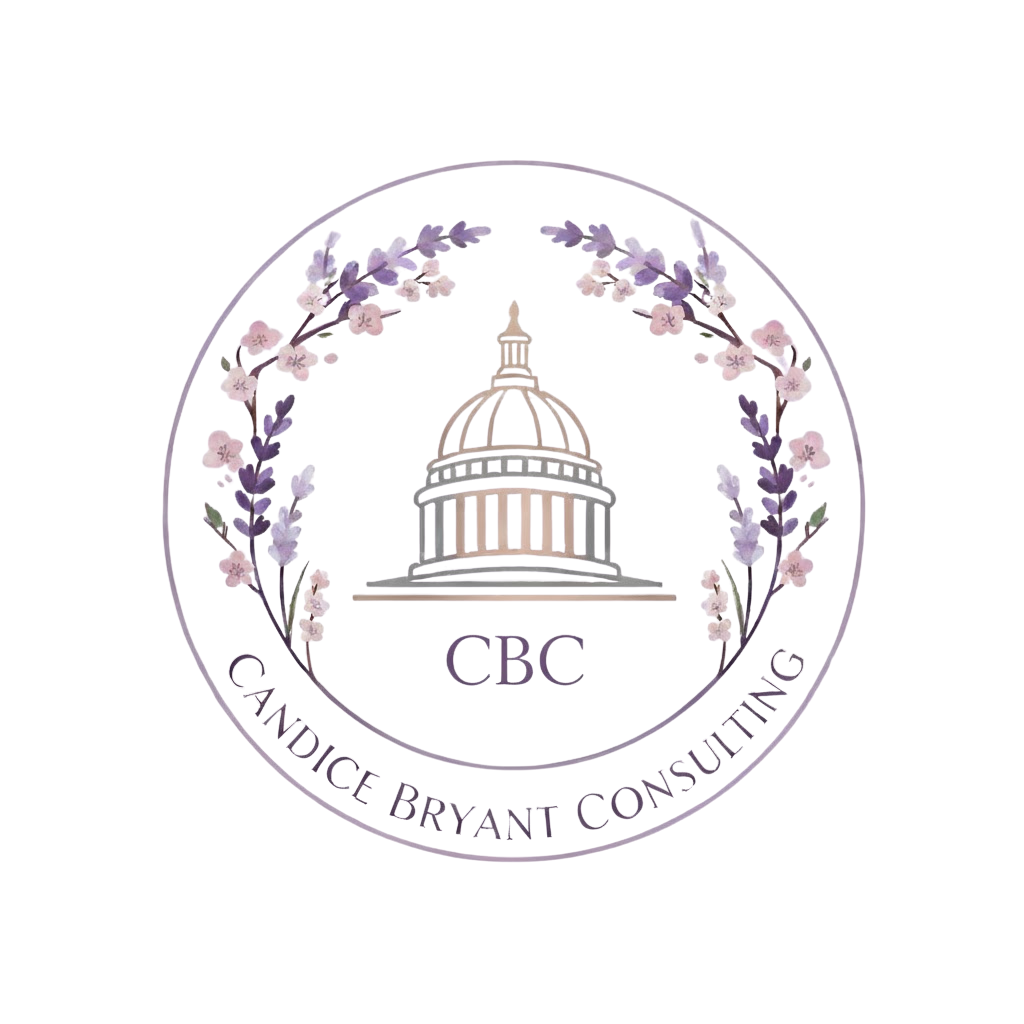Candice’s Current Thinking
Weekly analysis and perspectives on the AI and policy landscape.

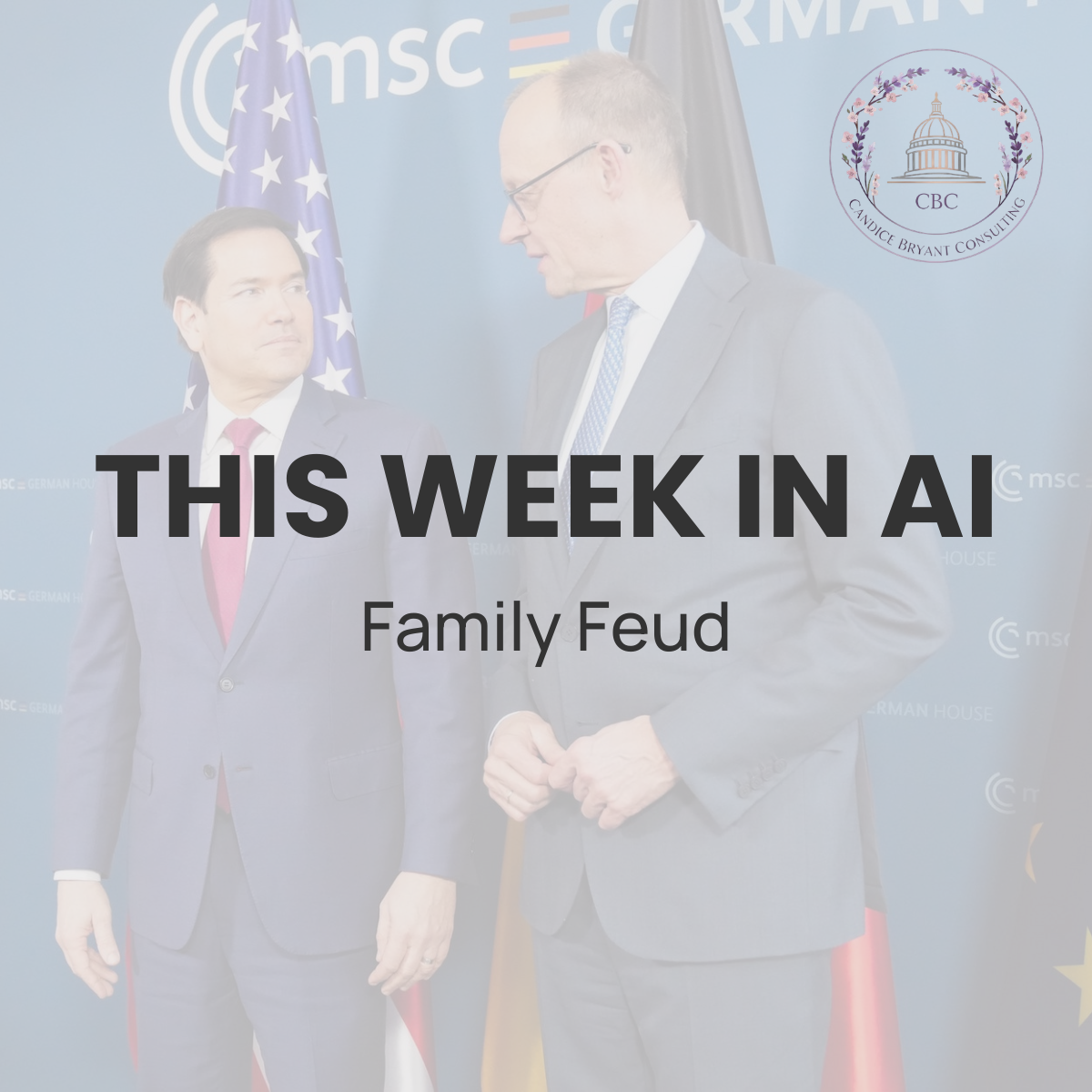
THIS WEEK IN AI
For the first time at the Munich Security Conference, tech sat “alongside tanks and treaties” as a pillar of global security. But the alliance that's supposed to secure the future spent most of the weekend contemplating whether it still exists.
This week, I'm tracking the mood coming out of Munich and the coinciding launch of the Trusted Tech Alliance.
Photo: U.S. Department of State
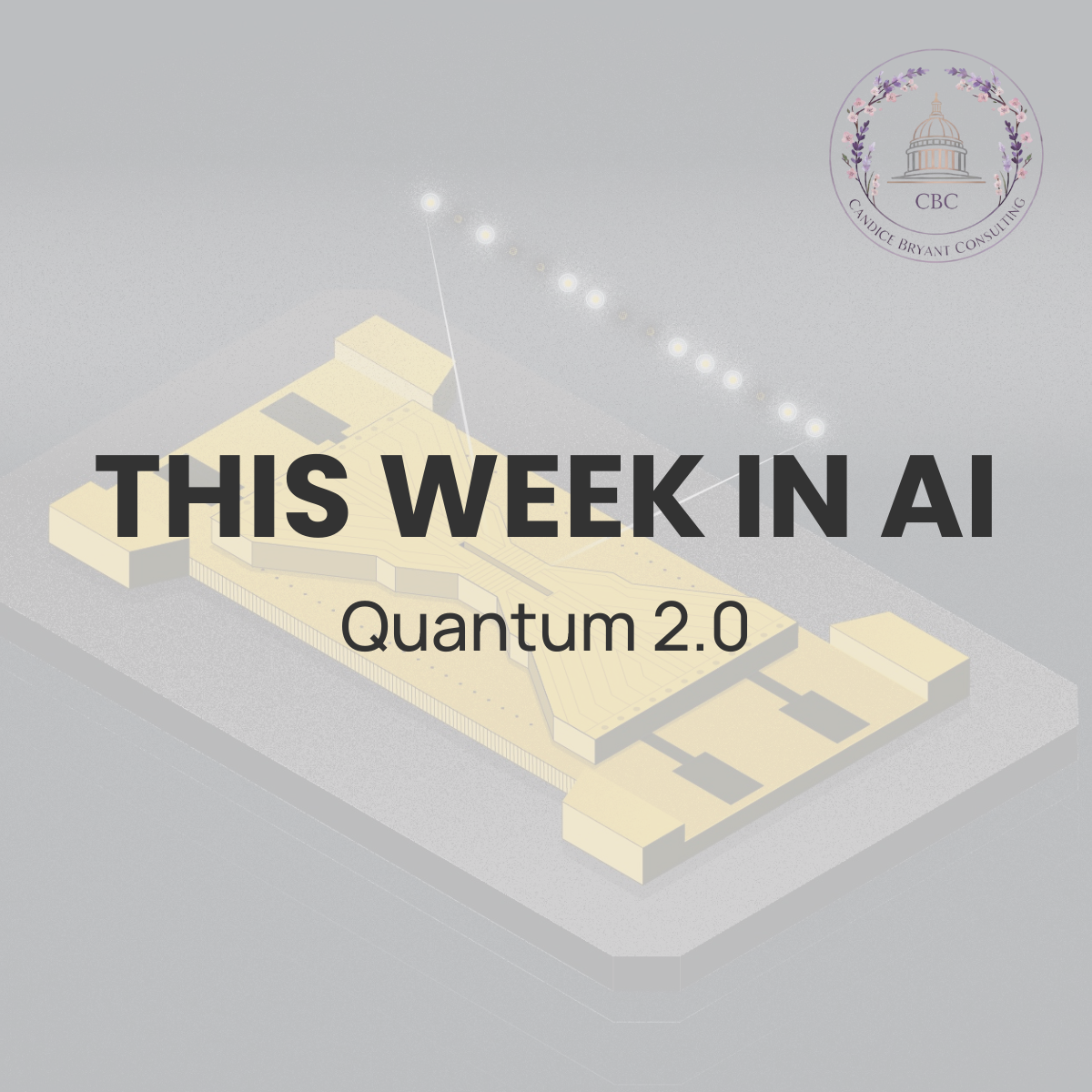
THIS WEEK IN AI
Quantum has been the invisible engine of the modern world for decades. Every time we use a smartphone, an MRI machine, or a laser, we are harnessing the first generation of quantum technology: "Quantum 1.0."
Now, we are entering "Quantum 2.0." And the rules are changing.
This week, I'm tracking a draft White House Executive Order on quantum innovation and Los Alamos National Lab consolidating quantum researchers under one center.
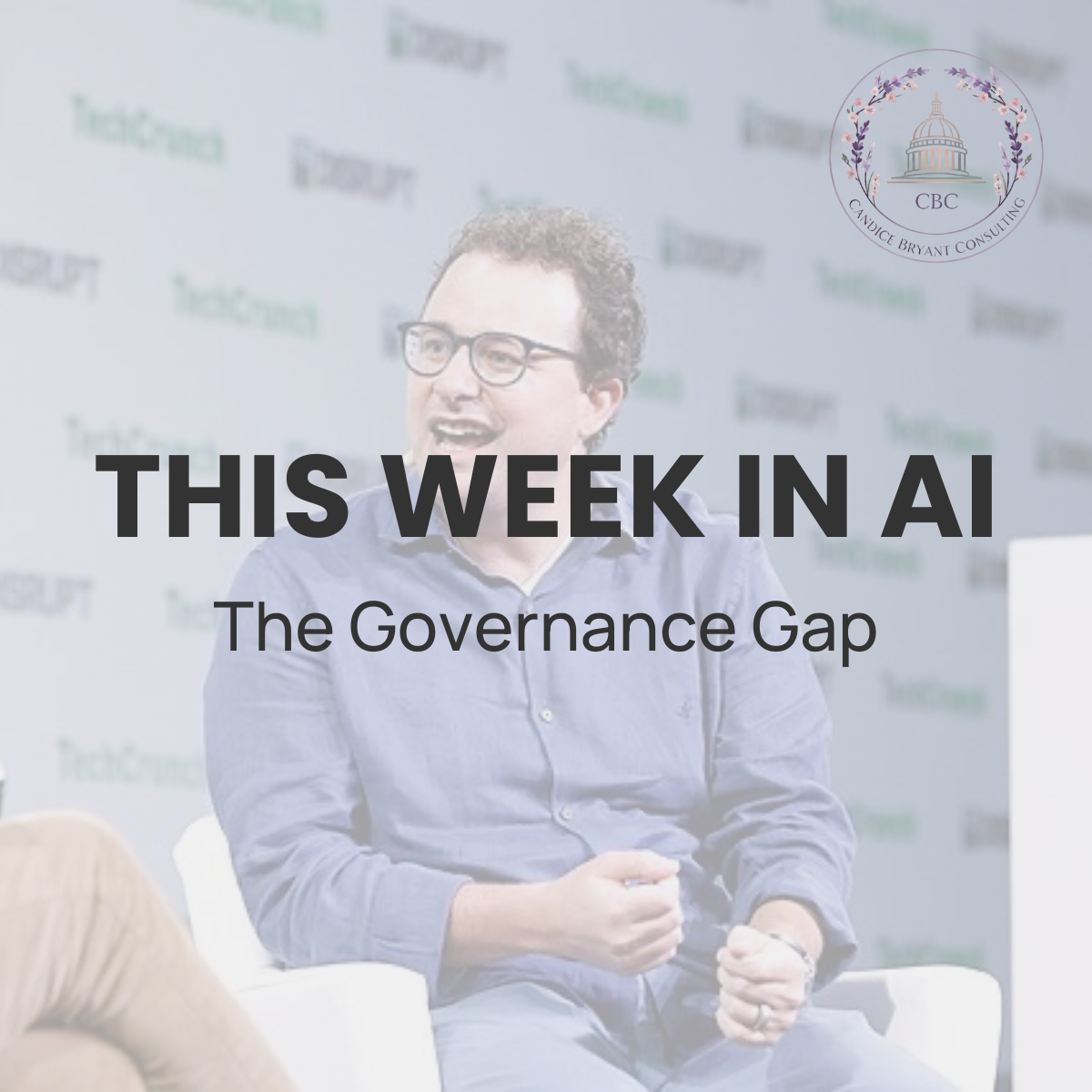
THIS WEEK IN AI
AI capabilities are accelerating toward—and potentially past—human-level intelligence faster than most expected. But as tech outpaces policy, we are facing a fundamental governance gap. We haven't resolved basic questions around guardrails, accountability, and control, even as we've already deployed "human-on-the-loop" AI systems into the wild. These questions are becoming urgent as global strategic alliances fracture and nuclear arms control frameworks expire.
This week, I’m tracking a standoff between the Pentagon and Anthropic over how it can use Claude, a Waymo accident involving a pedestrian, and the impending expiration of New START this Thursday—all set against the backdrop of Anthropic CEO Dario Amodei’s new 38-page essay, "The Adolescence of Technology," which maps a "battle plan" for surviving the risks of powerful AI.
Photo: TechCrunch / CC BY 2.0

THIS WEEK IN AI
Each week, I synthesize the key developments in AI and public policy so you don't have to. This week, I'm focusing on a single story: the World Economic Forum's 2026 Annual Meeting in Davos, Switzerland.
AI dominated at Davos, but not just as an innovation story. The conversation spanned sovereignty, energy and resource scarcity, cracks in the transatlantic alliance, and labor and the future of work.

THIS WEEK IN AI
Each week, I synthesize the key developments in AI and public policy so you don’t have to. Here’s what I’m watching:
The Pentagon launches an “AI-first” acceleration strategy
DHS invests in drone defense as the military tests kinetic swarms
AI memory demands drive up consumer device costs

Iran and the Liar’s Dividend
In late December, protests broke out across Iran amid a deepening economic crisis. As demonstrations spread and authorities moved to suppress them, the Iranian regime imposed a near-total internet blackout beginning January 8. Amnesty International warned the shutdown was being used to conceal killings and prevent evidence from reaching the outside world.
The tactic is familiar. Internet shutdowns have long been part of Iran's playbook, designed to create doubt "and for us to be confused with who is telling the truth," experts say.

THIS WEEK IN AI
Each week I synthesize the key developments in AI and public policy so you don't have to. Here's what I'm watching:
• White House signals "Bring Your Own Power" model for data centers.
• Pentagon deadline to purge foreign AI from defense systems approaches.
• Bipartisan quantum legislation introduced in the Senate.
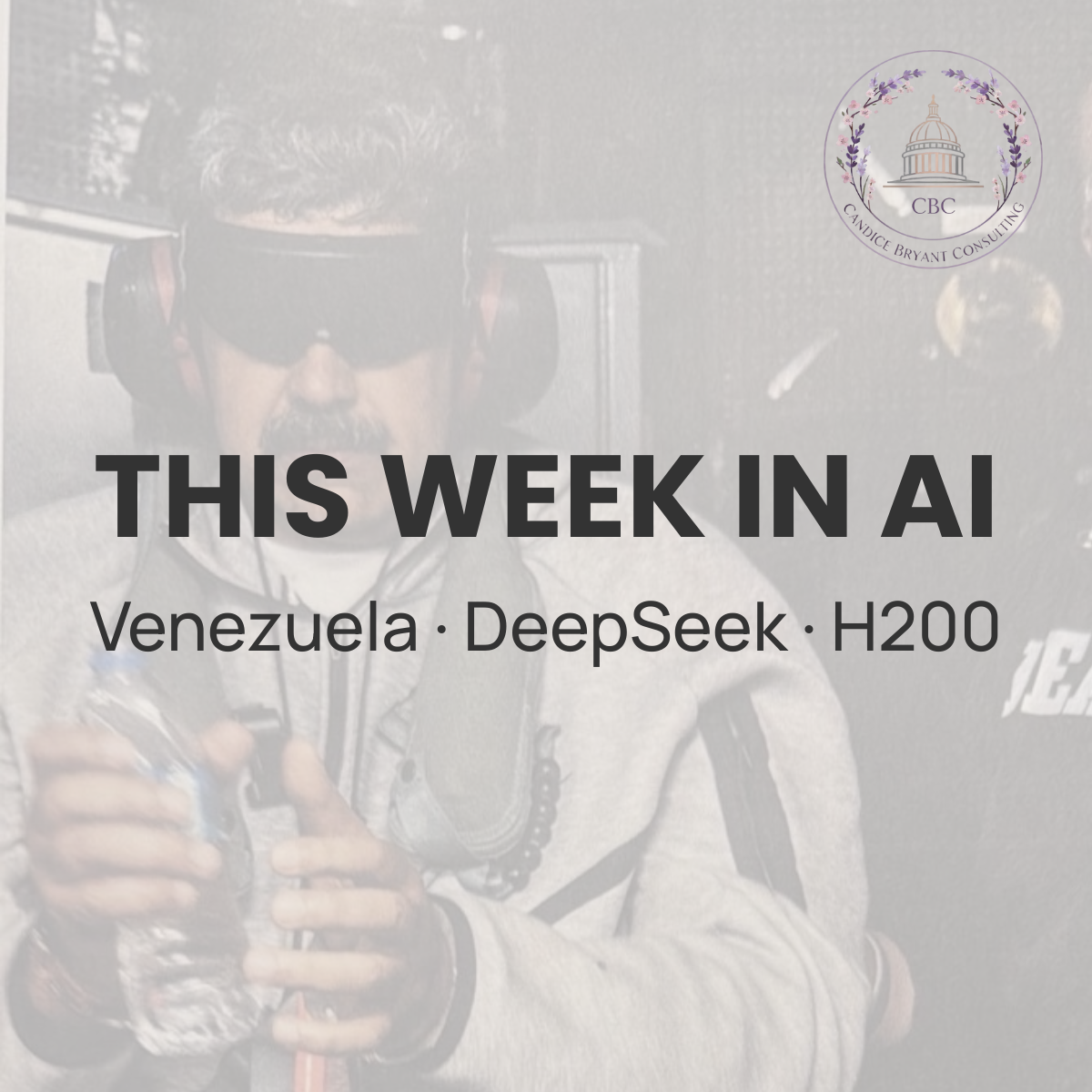
THIS WEEK IN AI
Each week I synthesize the key developments in AI and public policy so you don't have to. Here's what I'm watching:
• The U.S. arrested Venezuelan President Nicolás Maduro and his wife in a military operation. Explanations focused only on drugs and oil are incomplete and overlook other critical issues over which the U.S. and China have sparred.
• Chinese AI Lab DeepSeek published new breakthrough research.
• China reportedly may place conditions on H200 imports.
Three stories, one through-line. For tech companies navigating this space, demonstrating commitment to national security priorities—not just market position—is increasingly essential.
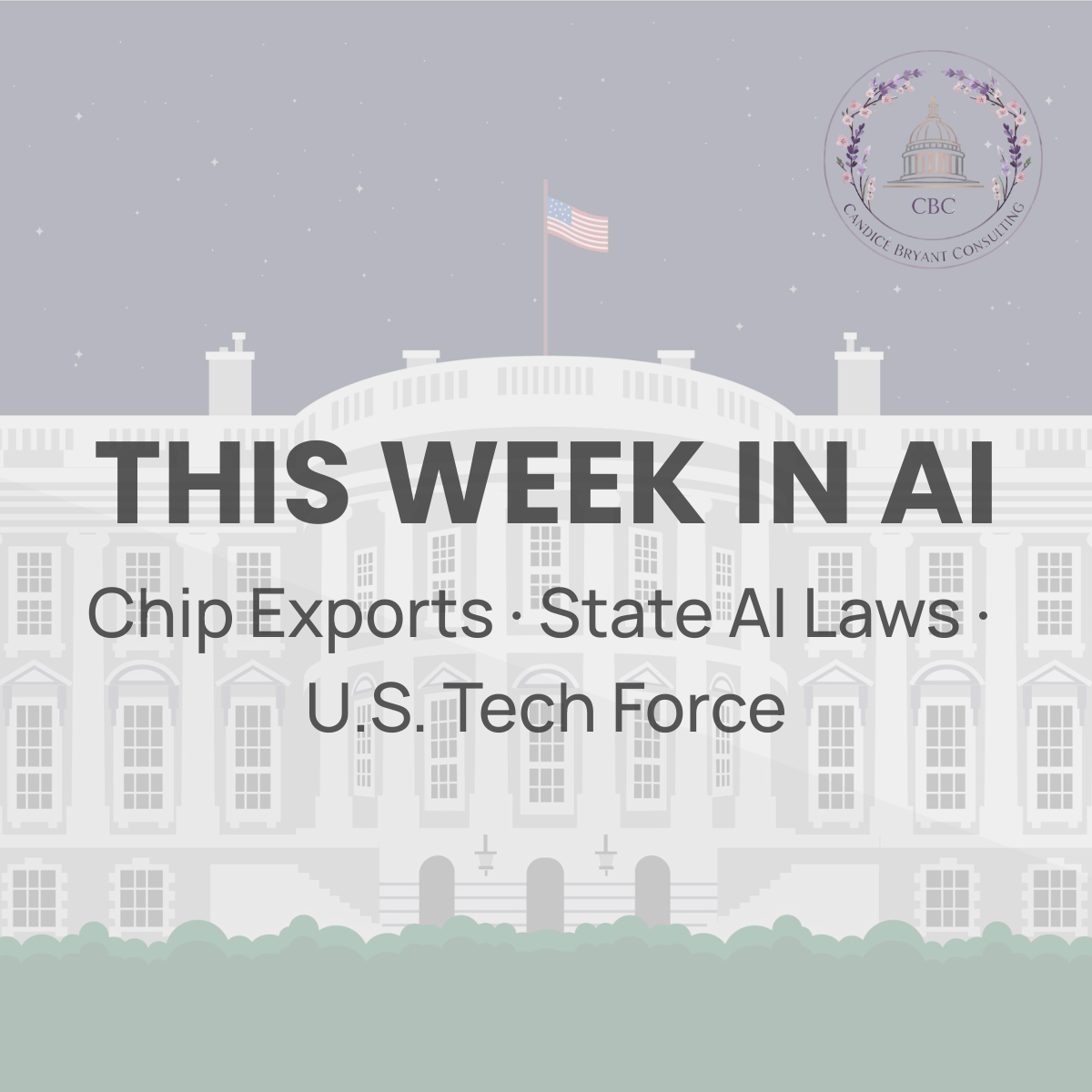
THIS WEEK IN AI
Each week I synthesize the key developments in AI and public policy so you don't have to. Here's what I'm watching:
• President Trump announced Nvidia will be allowed to sell H200 chips to China with a 25% cut for the U.S. government
• The administration signed an executive order challenging state AI regulations, prompting pushback from state lawmakers
• The federal government launched U.S. Tech Force to hire more engineers and DOD launched GenAI.mil
Taken together, this week's developments underscore critical priorities for tech companies: addressing national security concerns from Congress, navigating competing federal and state regulatory priorities, and deepening government partnerships.
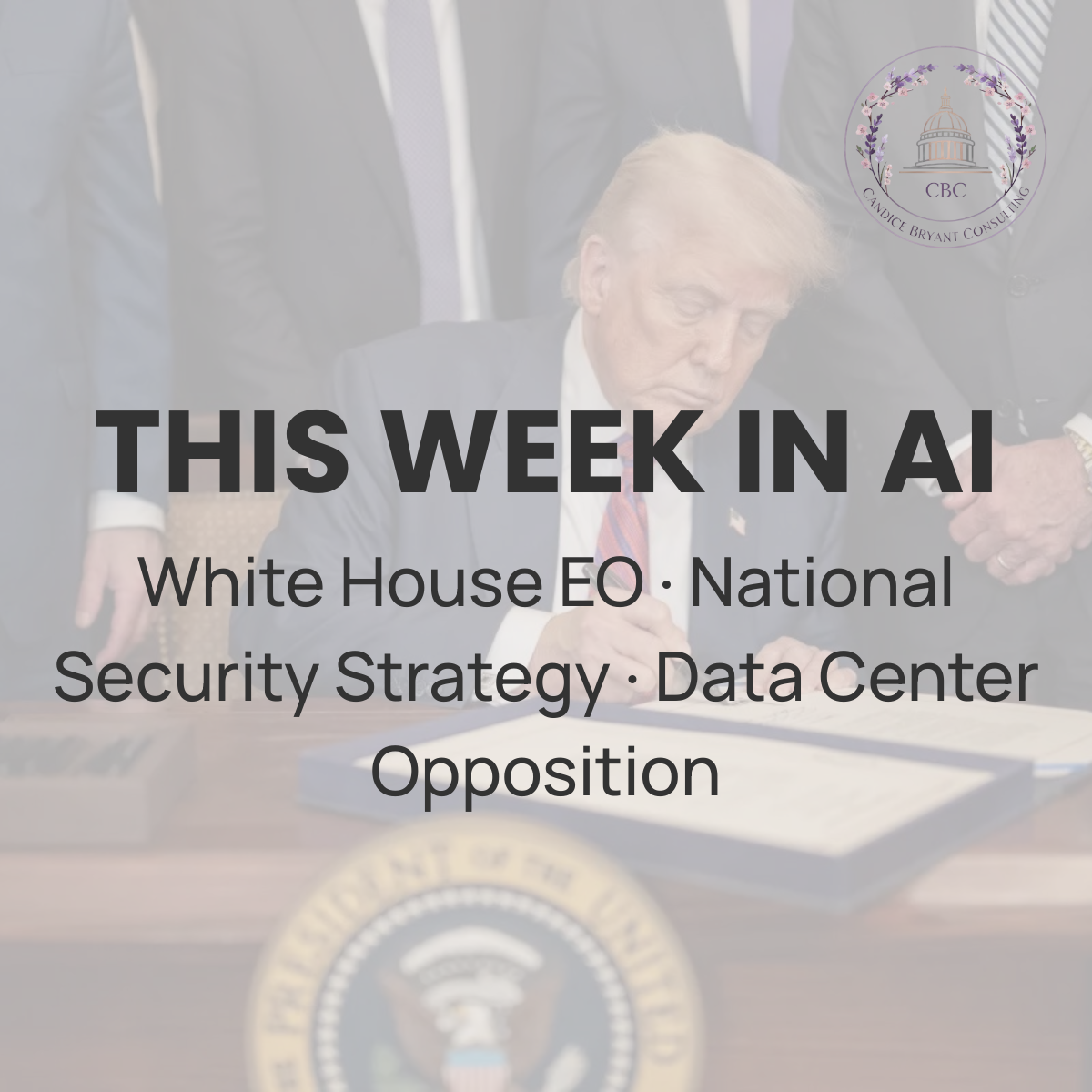
THIS WEEK IN AI
Each week I synthesize the key developments in AI and public policy so you don’t have to. Here’s what I’m watching:
• The White House is preparing an executive order to override state AI laws
• The administration released its National Security Strategy reaffirming AI as a vital national interest
• Local pushback is delaying data center projects across dozens of states
Taken together, this week’s news underscores the ongoing battle over AI regulation and the competing interests of federal and state authorities, the tech industry, and local communities.
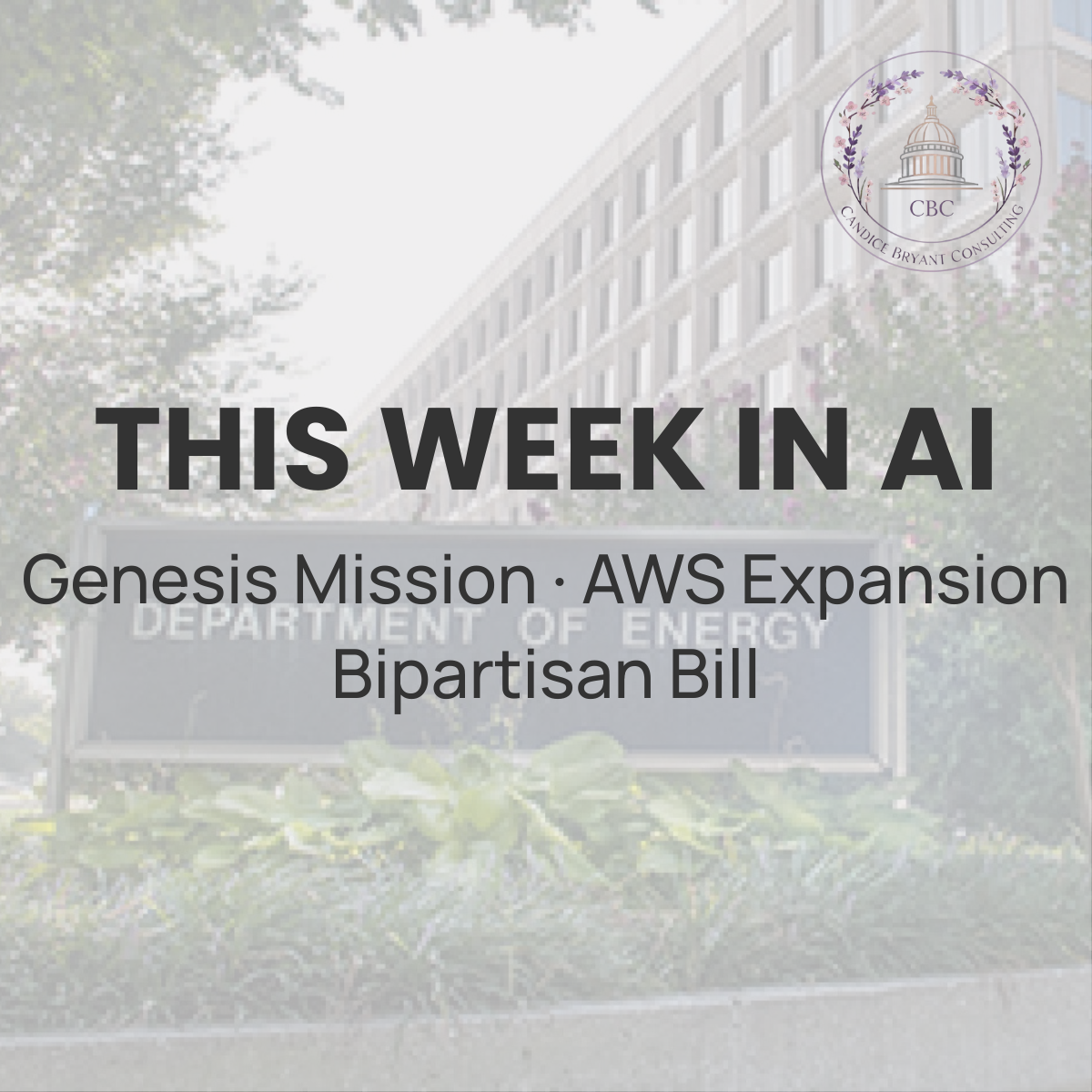
THIS WEEK IN AI
Each week I synthesize key developments in AI and public policy so you don’t have to. Here’s what I’m watching:
• The White House launched the Genesis Mission for AI-enabled scientific discovery
• AWS announced a $50B expansion of federal AI infrastructure
• Bipartisan legislation from SSCI members aims to protect U.S. AI from foreign adversaries
Together, these developments show rare bipartisan alignment around a strategic reality: U.S. AI leadership depends on deep public-private sector partnerships that both accelerate innovation and defend against threats.
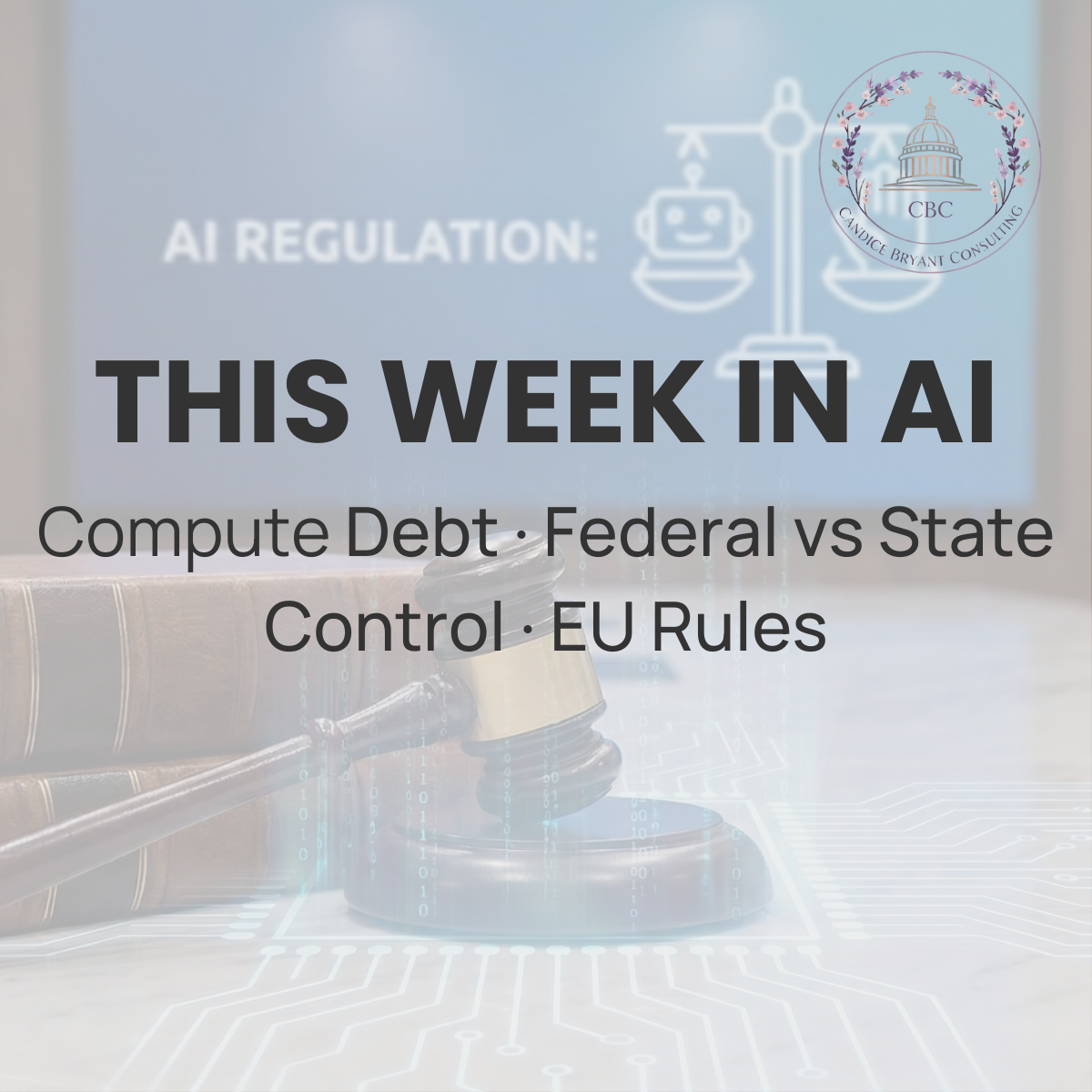
THIS WEEK IN AI
Each week I synthesize the key developments in AI and public policy so you don’t have to. Here’s what I’m watching:
• AI companies increasingly relying on debt to finance compute
• A draft White House order targeting state-level AI laws paused
• Europe delaying enforcement of high-risk AI rules
Together these stories show how AI is reshaping the global regulatory landscape.

THIS WEEK IN AI
Each week I synthesize the key developments in AI and policy so you don’t have to. Here’s what I’m watching:
• A Chinese state-sponsored cyberattack using a commercial AI model
• A push inside the Pentagon to overhaul its acquisitions system
• A state government deploying AI to reduce friction for citizens
Together these stories show how AI is reshaping the geopolitical landscape and public sector.

How to Stand Out in a Crowded Market
Tens of millions of startups launch globally every year. Founders want to believe they’re building something unique, but crowded markets are the norm. And that’s good. It means the problem is real, people care, and demand already exists. That’s capitalism working.
And AI will only make markets more crowded. Products and services that once required technical expertise are now available to anyone with an idea. AI is flattening the skills curve for everyone.
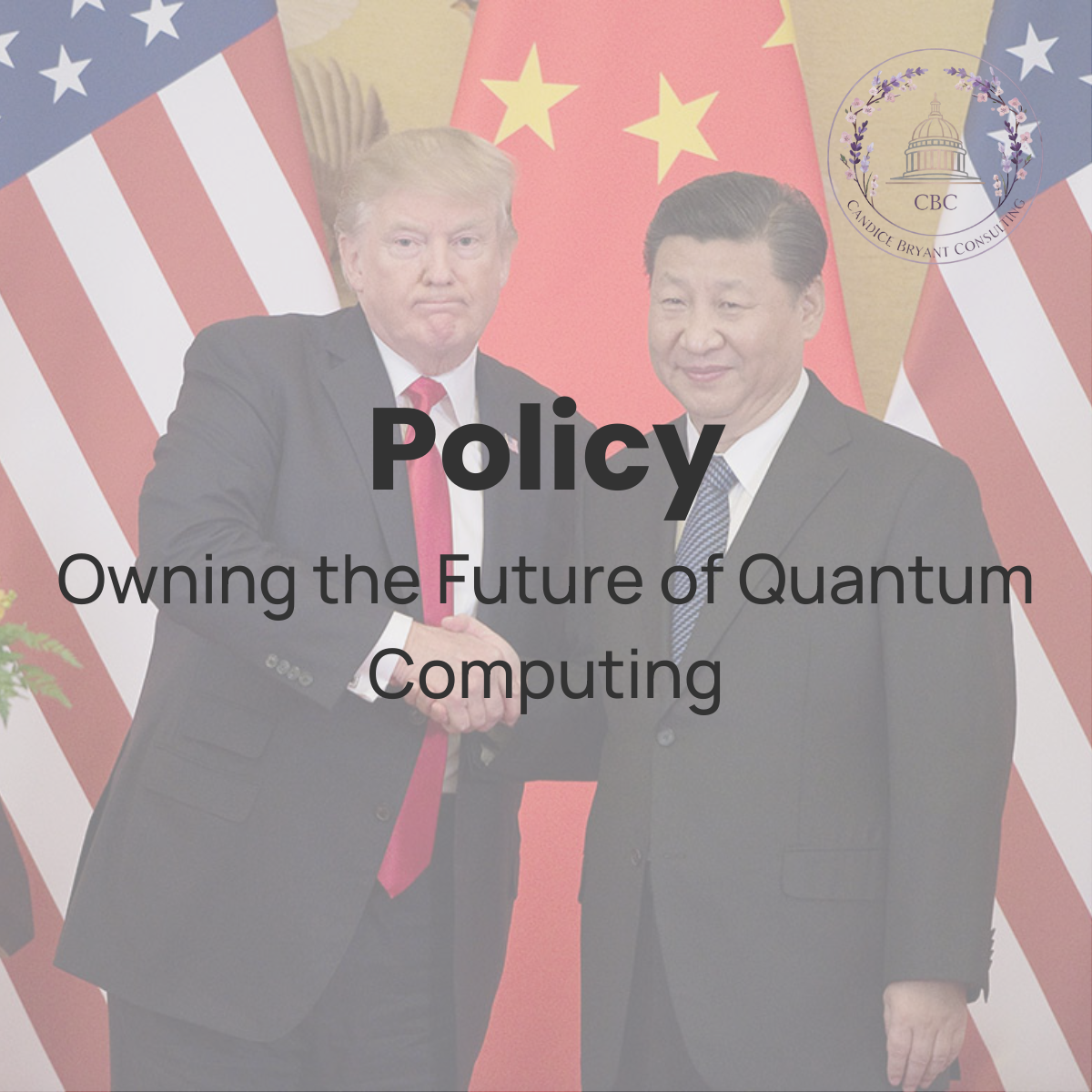
Owning the Future of Quantum Computing
On October 23, The Wall Street Journal reported that the Trump administration was exploring equity stakes in U.S. quantum computing companies like IonQ, Rigetti Computing, and D-Wave Quantum. The story surfaced just days before President Trump’s meeting with Chinese President Xi Jinping, which took place on the sidelines of the APEC Summit amid heightened tensions between Washington and Beijing over trade and tech restrictions.
The Commerce Department denied they were “currently” in talks with quantum companies, careful phrasing that neither addressed prior discussions nor ruled out future ones. Quantum stocks rose and remained up, even after the denial.
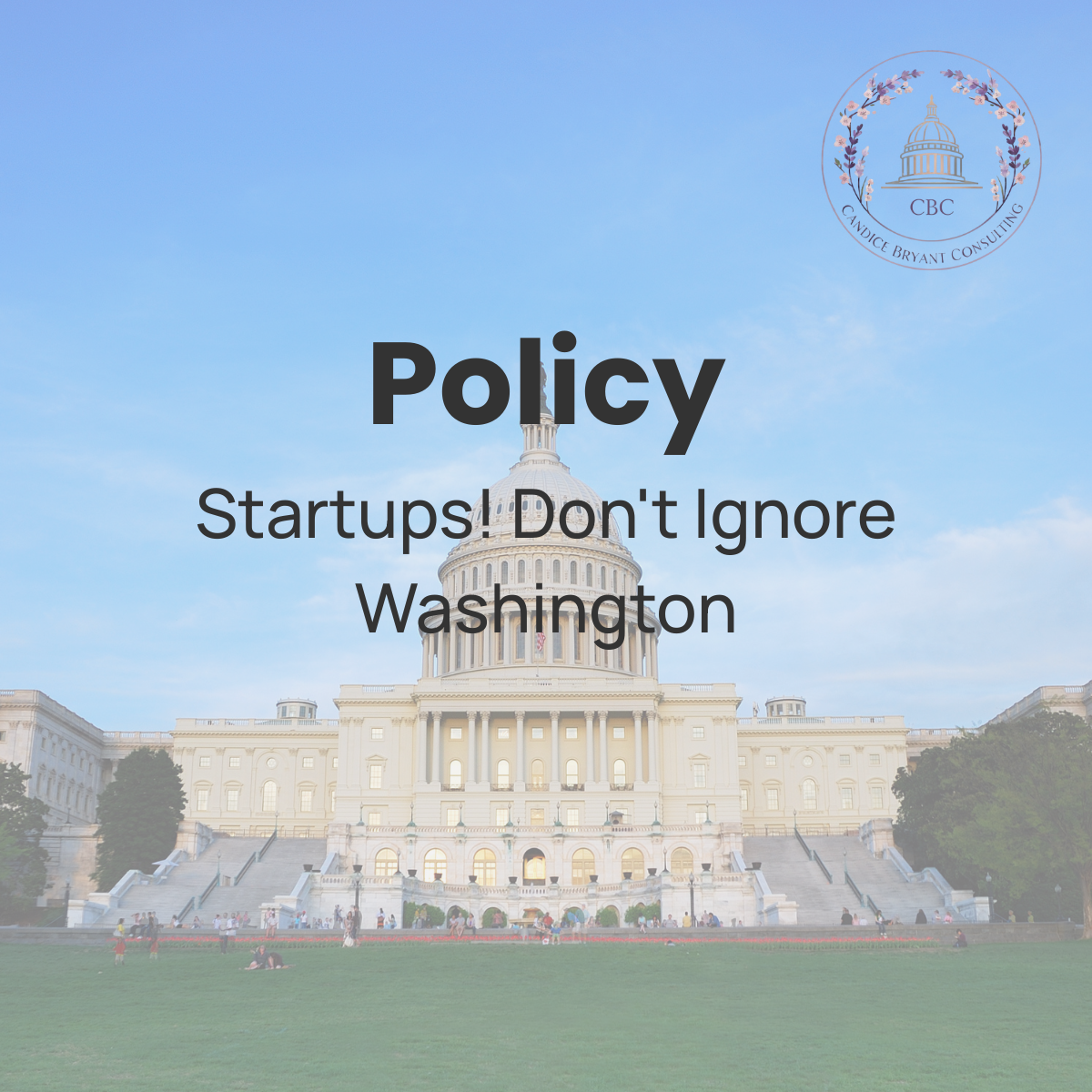
Startups! Don't Ignore Washington
We're approaching a 1996 moment for AI.
In 1996, the Telecommunications Act became the first major overhaul of communications law in more than 60 years—and the first time the Internet entered the regulatory conversation. The companies that showed up helped shape the framework that governed their industry for decades. The ones that didn't? They lived with whatever was decided for them.
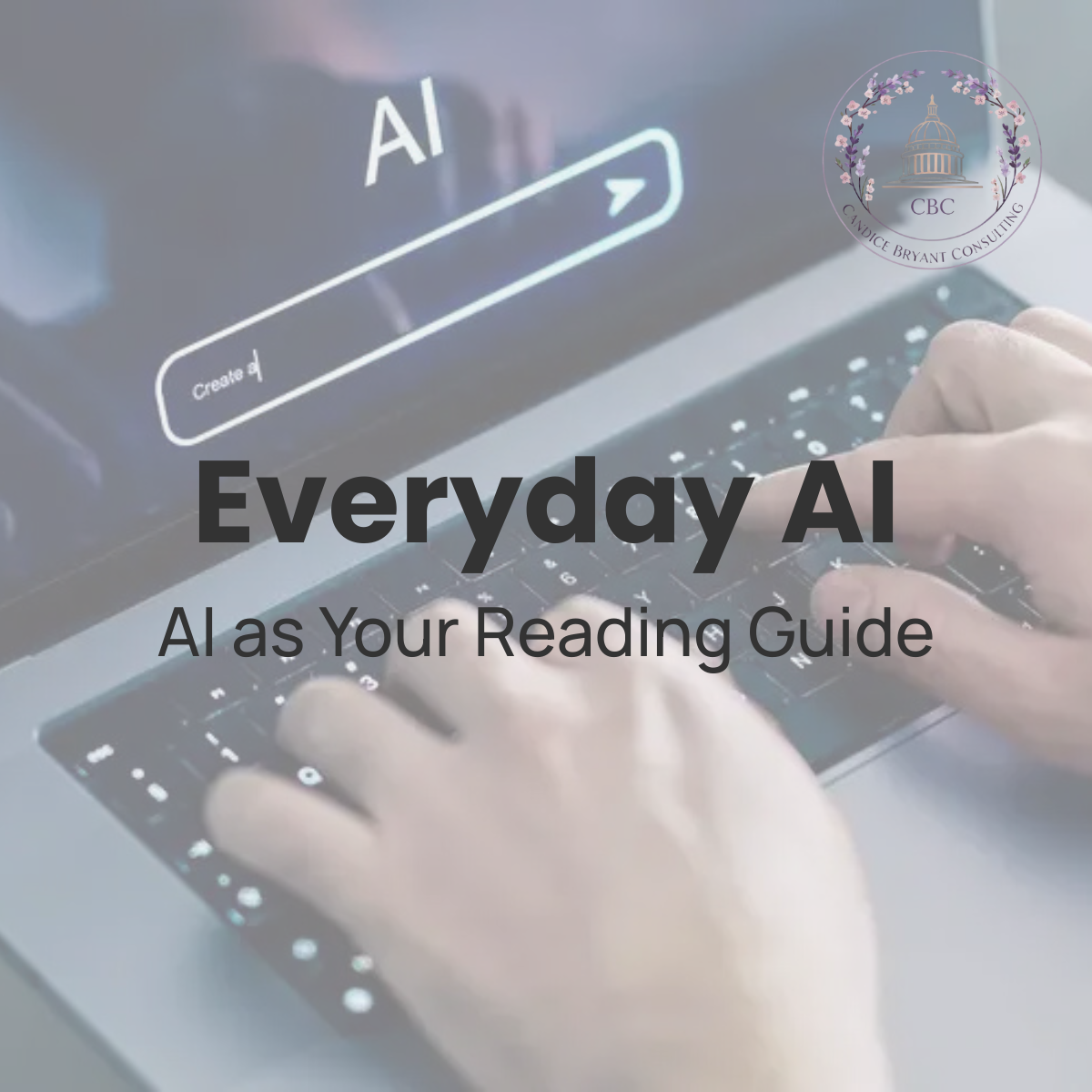
AI as Your Reading Guide
I’m reading six books right now—four nonfiction, two novels.
The challenge: the thickest is over 600 pages, and a few nonfiction titles overlap.
Inspired by a Supreme Court justice’s memoir I was reading, I asked AI: “Judges read a lot—how do they get through it all?”
The first answer made me laugh: “They have clerks.”
But the next suggestion was quite helpful: “And they use efficient reading strategies.”

Fiction Belongs on Your AI Reading List
I recently finished Bruce Holsinger’s Culpability, a novel that makes the abstract debate around AI ethics deeply personal. The story’s central dilemma: a family is in a fatal accident in their AI-powered self-driving car after the teenage son jerks the wheel. It also turns out the mother, Lorelei, designed the car’s algorithm. Holsinger shows how impossible it is to untangle fault when technology and human lives intersect.
While the book has many layers, it raises a crucial question for our own lives: what is our role in shaping AI’s impact?

When My Daughter Said She Wasn’t Allowed to Use AI for School
At the start of the last school year, my middle schooler came home and announced, “We’re not allowed to use AI.” The school hadn’t explicitly banned it; she had simply interpreted “don’t cheat” as “don’t use.”
It struck me how easily a well-intentioned message can get muddled. It’s often simpler to say don’t than to explain how, which can make it harder for kids to understand and explore a world where AI is already everywhere.
Candice Bryant Consulting provides strategic intelligence, public affairs advisory, and communications strategy for organizations operating at the intersection of AI and emerging tech policy, national security and public-private partnerships.
“This is a 1996 moment for AI — the companies that show up in Washington will shape the next decade.”
— Candice Bryant

